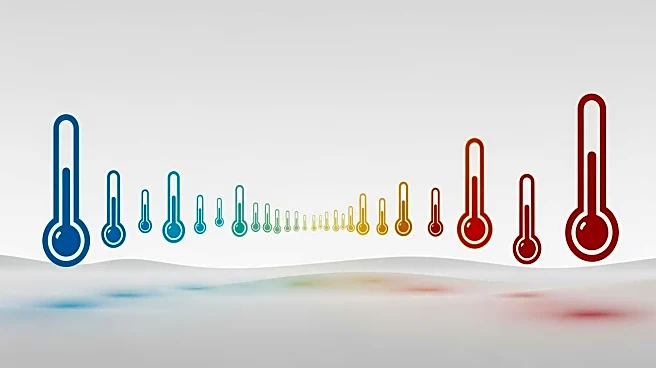What's Happening?
Researchers from Trinity College Dublin have identified a Universal Thermal Performance Curve (UTPC) that applies to all species, dictating their responses to temperature changes. This curve shows that species'
performance increases with temperature until an optimum is reached, after which performance declines rapidly. The discovery suggests that species are more constrained in their ability to adapt to climate change than previously thought, as the UTPC applies across diverse life forms, from bacteria to reptiles.
Why It's Important?
The UTPC's implications are significant in the context of global climate change, as it suggests that many species may struggle to adapt to rising temperatures. This could impact biodiversity and ecosystem stability, with potential consequences for agriculture, fisheries, and conservation efforts. Understanding these constraints can inform strategies to mitigate climate change effects and guide conservation policies. The research highlights the need for further studies to explore potential exceptions to the UTPC and their adaptive mechanisms.
What's Next?
Future research will focus on identifying species that may deviate from the UTPC, providing insights into potential adaptive strategies. This could lead to breakthroughs in understanding how some organisms might cope with climate change. Additionally, the findings could influence policy decisions regarding habitat protection and climate adaptation measures, emphasizing the importance of maintaining ecological balance in the face of environmental shifts.











